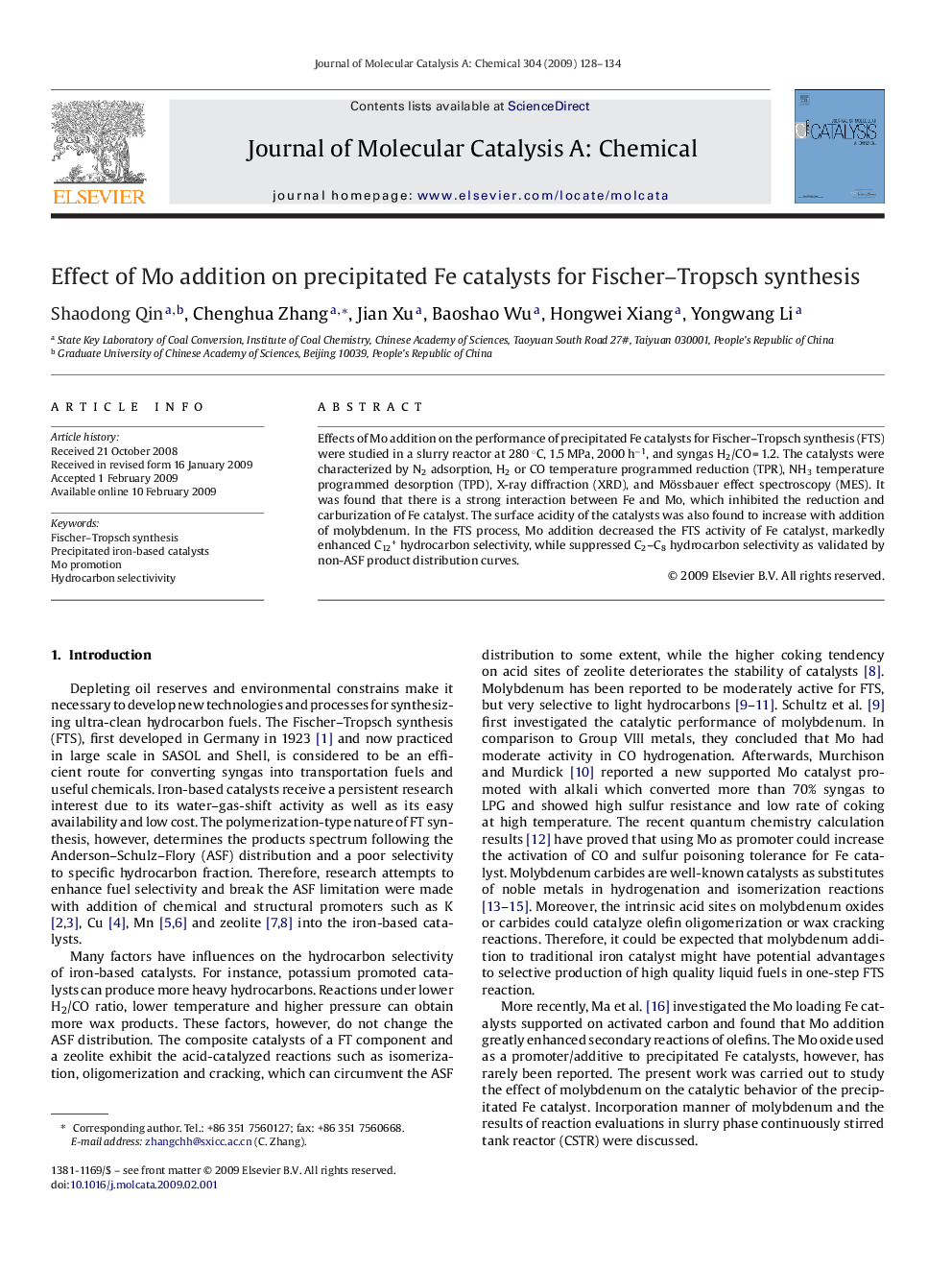| Article ID | Journal | Published Year | Pages | File Type |
|---|---|---|---|---|
| 67059 | Journal of Molecular Catalysis A: Chemical | 2009 | 7 Pages |
Effects of Mo addition on the performance of precipitated Fe catalysts for Fischer–Tropsch synthesis (FTS) were studied in a slurry reactor at 280 °C, 1.5 MPa, 2000 h−1, and syngas H2/CO = 1.2. The catalysts were characterized by N2 adsorption, H2 or CO temperature programmed reduction (TPR), NH3 temperature programmed desorption (TPD), X-ray diffraction (XRD), and Mössbauer effect spectroscopy (MES). It was found that there is a strong interaction between Fe and Mo, which inhibited the reduction and carburization of Fe catalyst. The surface acidity of the catalysts was also found to increase with addition of molybdenum. In the FTS process, Mo addition decreased the FTS activity of Fe catalyst, markedly enhanced C12+ hydrocarbon selectivity, while suppressed C2–C8 hydrocarbon selectivity as validated by non-ASF product distribution curves.
Graphical abstractMolybdenum modified participated Fe catalysts were prepared by two different ways. Mo addition markedly enhanced C12+ hydrocarbon selectivity, while suppressed C2–C8 hydrocarbon selectivity. The overall hydrocarbon product distribution apparently deviates from the Anderson–Schulz–Flory (ASF) kinetics, which is probably due to the acidic sites of Mo oxides promoting the olefin readsorption and secondary reaction.Figure optionsDownload full-size imageDownload as PowerPoint slide
